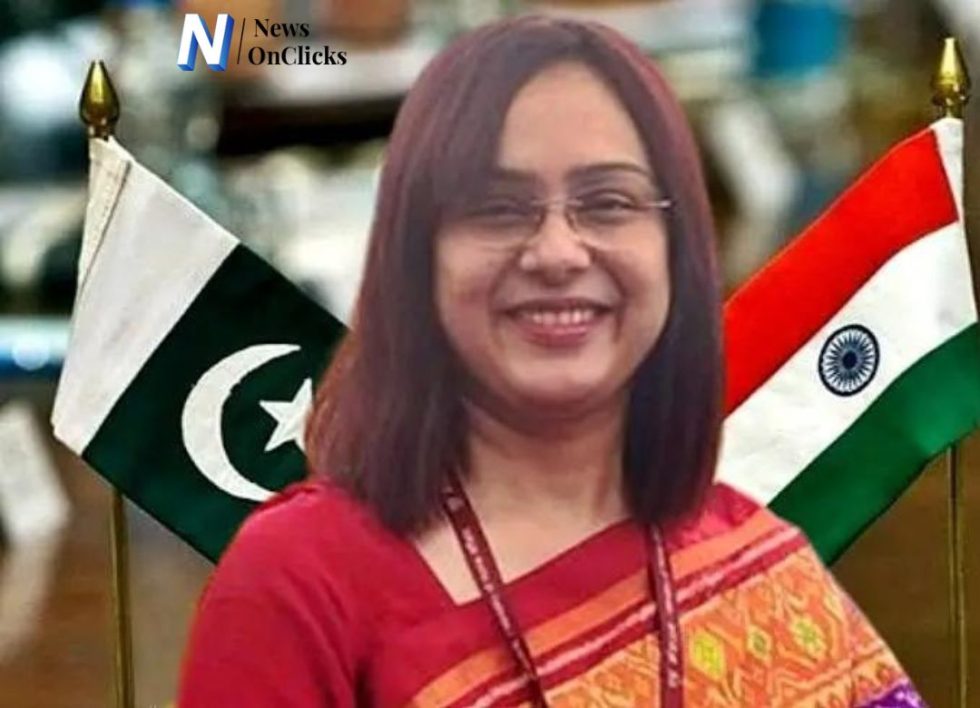
Geetika Srivastava, a member of the 2005 batch of the Indian Foreign Service (IFS), has been appointed as the charge d’affaires for India’s commission in Islamabad.
She is currently serving as a Joint Secretary in the Ministry of External Affairs (MEA). Her appointment is significant as she will be the first woman to lead India’s mission in Pakistan. In her current role, she is responsible for overseeing the Indo Pacific division at the MEA. Geetika Srivastava is expected to take over from Dr. M Suresh Kumar, who is likely to return to New Delhi, India.
Diplomatic Evolutions: A Closer Look at India and Pakistan’s Missions and Terminology
Starting in August 2019, a distinct shift has occurred in the diplomatic landscape, notably concerning the missions of India and Pakistan in Islamabad and New Delhi. These missions have embarked on a unique phase, functioning without High Commissioners, which has marked a distinct chapter in their bilateral interactions. At present, these missions are led by their respective charge d’affaires, stepping into the crucial role of representing their nations and facilitating diplomatic conversations.
Following the abrogation of Article 370, Ajay Bisaria served as the last Indian High Commissioner to Islamabad before Pakistan downgraded the status of the High Commission.
In recent years, Islamabad has been classified as a “non-family” posting for Indian diplomats. This classification has imposed limitations on the active participation of women officers in assuming crucial roles in the region.
Interestingly, there’s an important difference in how we name things in diplomacy. We often use particular words to describe missions between countries that are part of the Commonwealth and those that aren’t. When countries in the Commonwealth work together, we call their missions “High Commissions.” This emphasize their history together. On the other hand, when countries that are not part of the Commonwealth interact, we use the term “Embassy.” This special naming helps us understand how these missions work. It also shows how these missions build important connections around the world.
Geetika Srivastava’s Journey of Engagement and Leadership
During her diplomatic career, Geetika Srivastava had an important two-year assignment at the Indian embassy in China where she served as a third security in the Indian Embassy in Beijing till 2009.
Her role not only afforded her a relevant opportunity to engage with the intricacies of Sino-Indian relations but also enriched her understanding of international diplomacy within the context of a dynamic and influential nation like China.
Thereafter, she also held the position of Joint Secretary in the Ministry of External Afaairs in New Delhi.
Counting to this remarkable overseas experience, Geetika Srivastava assumed the pivotal role of Director of the Indian Ocean Region Division (IORD), a responsibility that enabled her to contribute her expertise to the intricate nuances of one of the world’s most strategically significant regions.
The elevation of Geetika Srivastava, an eminent woman officer of the Indian Foreign Service (IFS), to a significant leadership role in diplomatic representation between two nations not only marks a monumental milestone in itself but also serves as a powerful testament to the principles of gender equality and comprehensive representation.
Geetika Srivastava’s rise to this distinguished position serves as an inspiring example for women throughout India. It shows that merit, capability, and dedication can break barriers and create a future where women’s voices are not only heard but also take a leading role in shaping diplomatic discussions and international relations. This achievement paves the way for a more inclusive and diverse diplomatic landscape.









